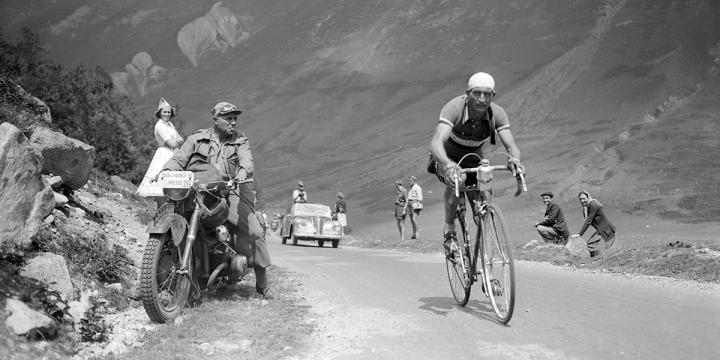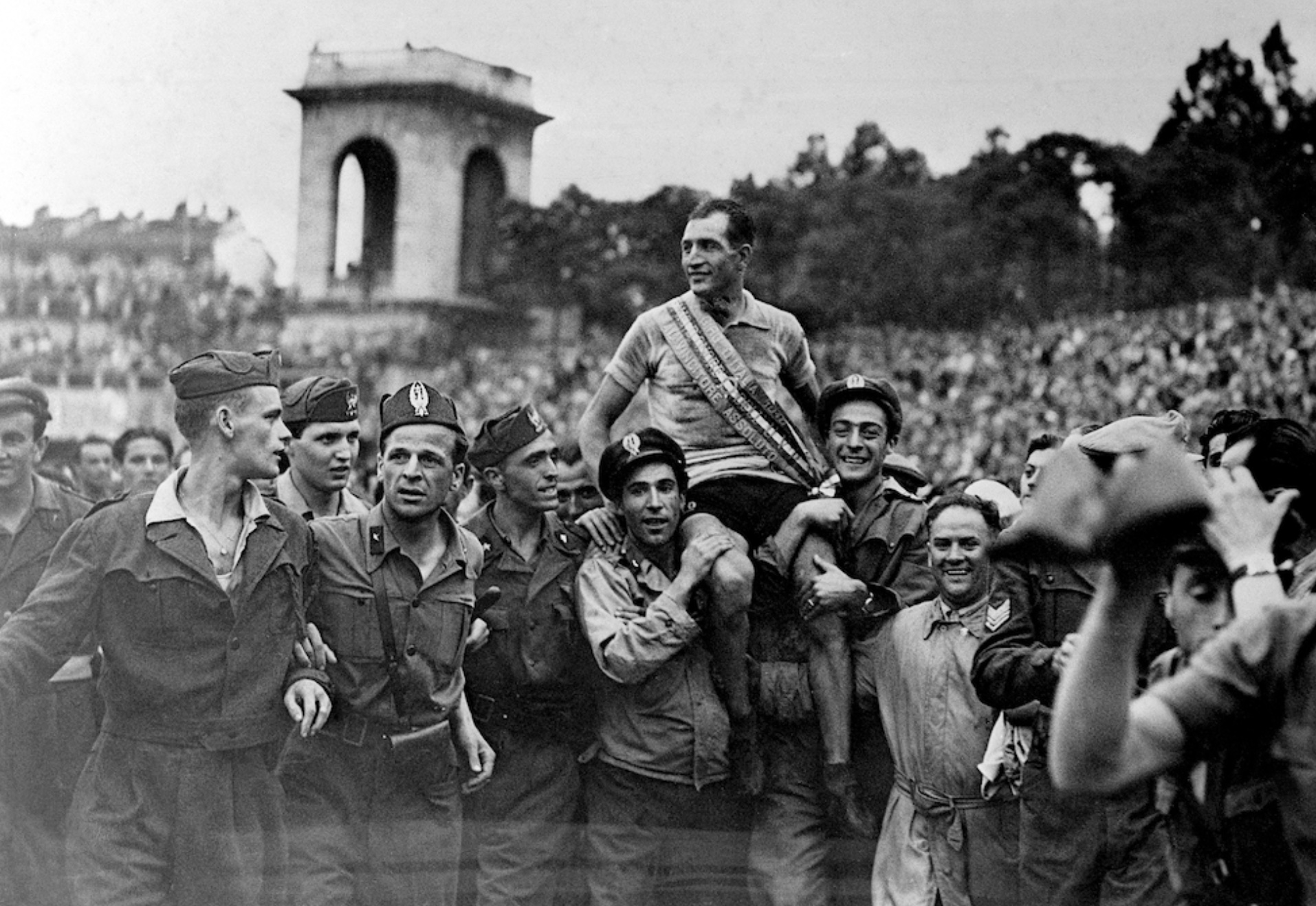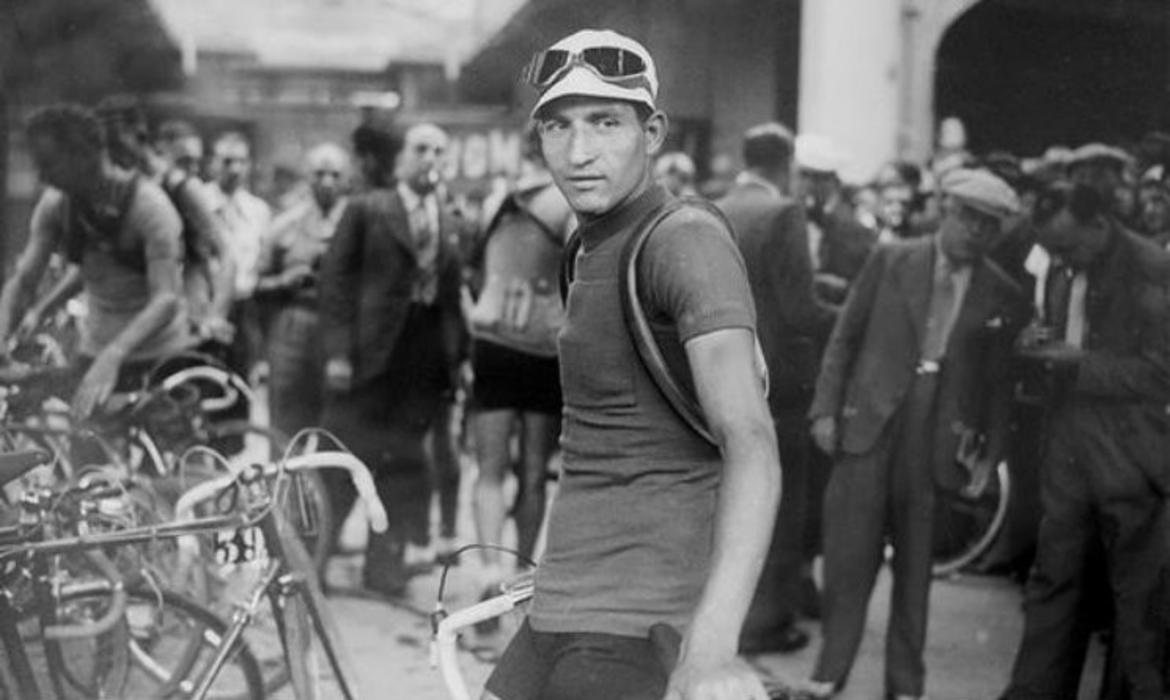21 years ago Gino Bartali, a sportsman with almost mythological exploits, was missing, on and off the track.
To refresh his memory of his sporting exploits, we remember only one of the most sensational cycling events of his career: we return with memory to 1948, and to Bartali's famous - and athletically semi-impossible - victory at the Tour de France.

The day before the climb, Bartali was at the Carlton Hotel in Cannes when he was called by Alcide De Gasperi who asked him to win the Cannes-Briançon stage to calm tempers very much in those days (following the attack on Palmiro Togliatti). Bartali is said to have replied: "I'll do even better than that. I'm going to win the whole tour!". And so he did, exactly 10 years after the first Tour de France won.
That victory against bartali's prediction prevented a civil war may be a historical gamble, but the secret this formidable runner kept until his death is even more important and beautiful.
"He had everything to lose. His story is one of the most dramatic examples, during the Second World War, of an Italian willing to risk his life to save the lives of strangers".
Director Oren Jacoby describes Gino Bartali in his documentary My Italian Secret, a documentary about the silent heroes who helped Jews escape persecution.

Bartali was one of the most famous cyclists of his time, a three-time Giro d'Italia winner, with two victories in the Tour de France,10 years later, before and after the war.
During his lifetime, he never talked about his wartime activities.
It was only after his death on May 5, 2000, that details began to emerge, and Jacoby put an end to some gaps by creating his film about Italian secret heroes.
Born in Ponte a Ema on July 18, 1914, he was the son of peasants and reached the height of his career as the war approached.

He won his first Giro d'Italia in 1936, retaining the title in 1937. Then, the whole of Italy celebrated its victory in the Tour de France in 1938: it was an event that Benito Mussolini eagerly awaited.
Mussolini in fact was of the opinion that if an Italian cyclist had triumphed at the Tour, he would prove that the Italians were better than the others also from a competitive point of view: it was a matter of national pride and fascist prestige.
Bartali was expressly invited to dedicate his victory to Mussolini, but he refused, dedicating his victory to the Virgin Mary with a blatant gesture; just halfway through that year's Tour, the hierarch published a Manifesto on race, which led to the deprivation of Jews of citizenship or any position in government or professions.
5 years later, in 1943, in the middle of World War II, the German army occupied northern and central Italy, immediately beginning to rake the Jews and send them to concentration camps.
At this point the Cardinal of Florence, Monsignor Elia Dalla Costa, asked Bartali, a devout Catholic, to join DELASEM,acronym for Delegation for the Assistance of Jewish Emigrants, the Jewish resistance organization that offered protection to Jews in danger.
His role in the network was particularly suited to his innate talent: he became in fact a courier. Apparently Bartali was riding long stretches on his bike to train, but in reality he was carrying fake photographs and IDs-, all hidden in the frame and handlebars of his bike.

When Bartali was stopped and searched, he expressly requested that his bike not be touched as the different parts were calibrated very carefully to reach maximum speed.
It seems evident that, choosing to be part of DELASEM, he put his life in extreme danger: at one point he was also arrested and questioned by the head of the fascist secret police in Florence, where he lived.
Once the war was over, and for many decades afterwards, it took a lot of investigative work, to reconstruct Bartali's story in these guise: his son Andrea remembered how his father was very reluctant to tell these exploits. "When I asked my father why I couldn't tell anyone, he said to me: Good is done, but it's not said. And some medals hang on to the soul, not to the jacket."
On September 23, 2013 Gino Bartali was declared Righteous among the Nations by Yad Vashem, a recognition for non-Jews who risked their lives to save a Jew during Nazi persecution.
image sources: rai play, amerigo milano, angensir, unduci magazine, trentino cultura










 Map
Map